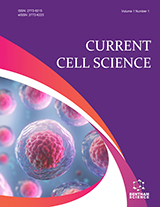Abstract
The understanding of the complex relationship between the immune and
nervous systems has significantly evolved in recent years. It is now recognized that the
inflammatory response and interactions between these two systems play crucial roles in
the development and progression of neurodegenerative diseases and injuries. The
immune and nervous systems are intricately connected, with bidirectional
communication pathways that allow them to influence each other's functions. This
cross-talk is mediated by various signaling molecules including cytokines, chemokines,
and neurotransmitters. Neuropathic pain is a debilitating condition that arises as a result
of damage or dysfunction in the central nervous system (CNS) or peripheral nervous
system (PNS). Neuropathic pain is a common pathological symptom of cancer and
diabetes. Neuropathic pain can be generated by resulting injury to peripheral or central
neurons through various neural pathways, ion channels, receptors, and
neurotransmitters. In this article, we elaborate on the recent progress in the
understanding of mechanism of the neuroinflammation. First, we provide current
knowledge of neuroinflammatory molecules and their association with
neuroinflammation. Subsequently, we describe recent advances in the understanding of
the pathophysiology of neuropathic pain in PNS and CNS, emphasizing breast cancer
and diabetes. Finally, we highlighted the current challenges of molecular understanding
and diagnosis regarding targeted therapies for the treatment of neuropathic pain.
Keywords: Metabolic disorder, Neuroinflammation, Neuropathic pain, Neurodegenerative disease, Tumor microenvironment.






















